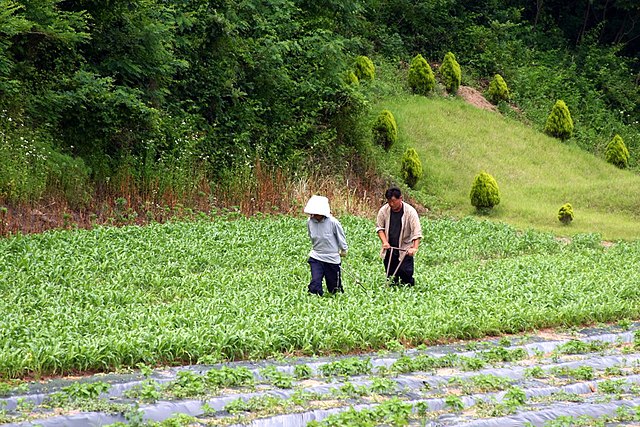In December 2020, a 31-year-old Cambodian migrant worker named Nuon Sokkheng was living in a greenhouse without proper heating when she passed away on a farm in Pocheon, Gyeonggi Province, South Korea. Unfortunately, Sokkhen’s death was not an isolated incident, as the conditions that led to her death are part of a larger problem surrounding poor labor conditions among migrant workers in South Korea, which the government has done little to improve.
South Korea has over 200,000 Asian migrant workers, mainly from Cambodia, Thailand, Vietnam, Indonesia and Nepal, who came to South Korea through the Employment Permit System (EPS). The program was launched in 2004 as a solution to labor shortages, but has been increasingly important given the recent labor shortages due to COVID-19-related restrictions on immigration.
However, activists are demanding a rehaul of EPS because of its contribution to the exploitation of migrant workers. Under EPS, migrant workers can stay up to three years in South Korea and if they are labeled “diligent workers” they can re-enter the country and work for another four years and ten months. One problem with EPS is that during their stay, migrants can change their workplace only up to three times with an employer’s consent, and those who end up leaving their jobs without consent could be reported to the police as illegal immigrants and face deportation. Migrants are also discouraged from speaking up about their mistreatment because if they are involved in a dispute and no longer labeled “diligent workers,” they then have lower chances of re-entering the country.
Migrant workers argue that this system violates their rights and is equivalent to forced labor because migrants are discouraged from leaving their employers even if they are exploited. Kim Dael-song, a pastor who runs the Pochean Migrant Workers Centre, says that “the hardest thing for workers is that there’s absolutely no freedom of movement and the workers are bound entirely to the owners. A complete master-servant relationship. This is the source of all the violations of human and labor rights.” Rights for farm workers are even worse than that of factory workers because the nation’s Labor Standards Act, which regulates working hours and break times, does not apply to workplaces with four or fewer employees, which is the typical number of laborers on farms.
This means that oftentimes, migrant workers, especially those working on farms, are overworked and underpaid. Activists argue that in Pocheon, migrants working on farms are farming for 10-12 hours a day with only two Saturdays off per month with meager salaries that are below what their contracts promised them. A migrant worker from Nepal who works on a farm considers finding work in a factory, because he claims that on a farm “it’s just an extreme amount of work (each day). You don’t get bathroom breaks. You don’t even have time to drink water.”
In addition to the grueling working hours and poor pay, many migrant workers are also living in substandard living conditions. On South Korean farms, nearly 70% of migrant laborers live in shipping containers or other types of makeshift homes that are far below safety and sanitation standards.
In response to these poor labor conditions, activists and migrant workers have fought to create reform. They have organized protests and even created a Migrant’s Trade Union in 2005 to improve their working conditions. After the death of Sokkheng, authorities stopped issuing employment permits to workplaces where they were housing migrant workers in greenhouses or other forms of substandard housing. Though there has been little government reform in improving working conditions, and the exploitation of migrants continues.
One factor that makes it difficult to improve working conditions is South Korea’s negative perception of migrant workers. Steve Hamilton, chief of mission of the International Organization for Migration to Korea, has noted that the “negative perception towards foreigners has prevented officials from being more open to migrant workers.” Due to the local media’s poor portrayal of foreigners and their impact on the country, there is less incentive to improve their labor conditions. Hamilton added that “fear-based misconception of foreign labor displacing jobs and decreasing wage levels should be tackled… a step that must be taken while reforming Korea’s immigration policies at the same time.” In fact, a study on immigration in South Korea found that 42% of South Koreans favored maintaining the current level of immigration, 32% supported a decrease in levels, while just 19% supported an increase.
To improve the working conditions of migrants, an overhaul of the EPS needs to be implemented to remove the dependency immigrants have on their employers. The negative perception surrounding migrants in South Korea also needs to change if improvements are to be made. In order to tackle this narrative, Hamilton suggests that migrant workers should be granted permanent residency in South Korea rather than having workplaces continue to replace them. He claims that “providing more room for migrants to settle and achieve success could also in return change the perception of migrants here.”
As South Korea faces labor shortages caused by an aging labor force and declining birthrate, migrant workers continue to be a crucial part of South Korea’s workforce and should be treated as such. The importance of migrant workers has been highlighted, especially during the COVID-19 pandemic, which exacerbated labor shortages as a result of halts on immigration. Looking forward, there needs to be a change in how migrants are perceived and a rehaul of the EPS system so migrant workers can have the basic human rights they deserve.






